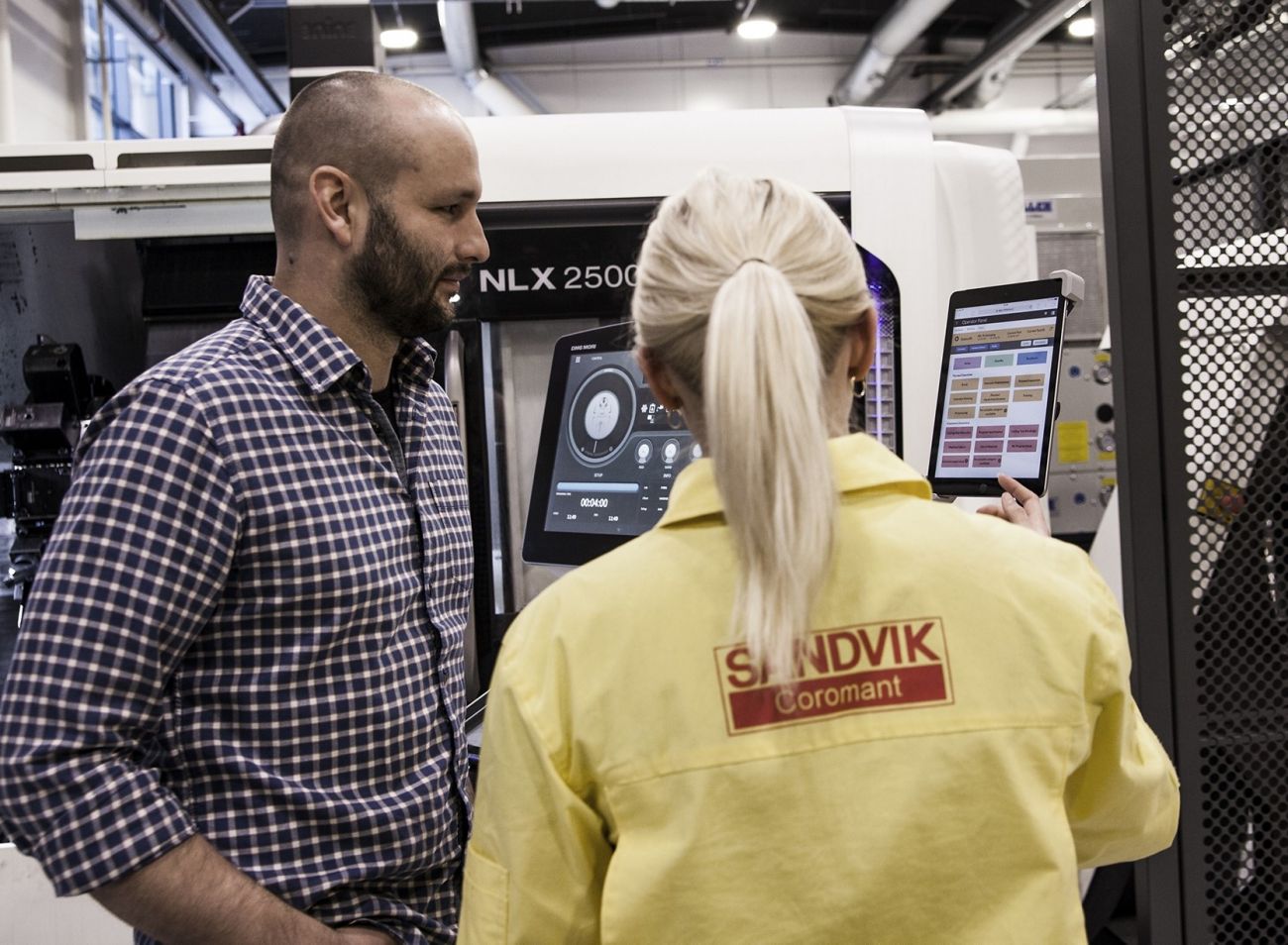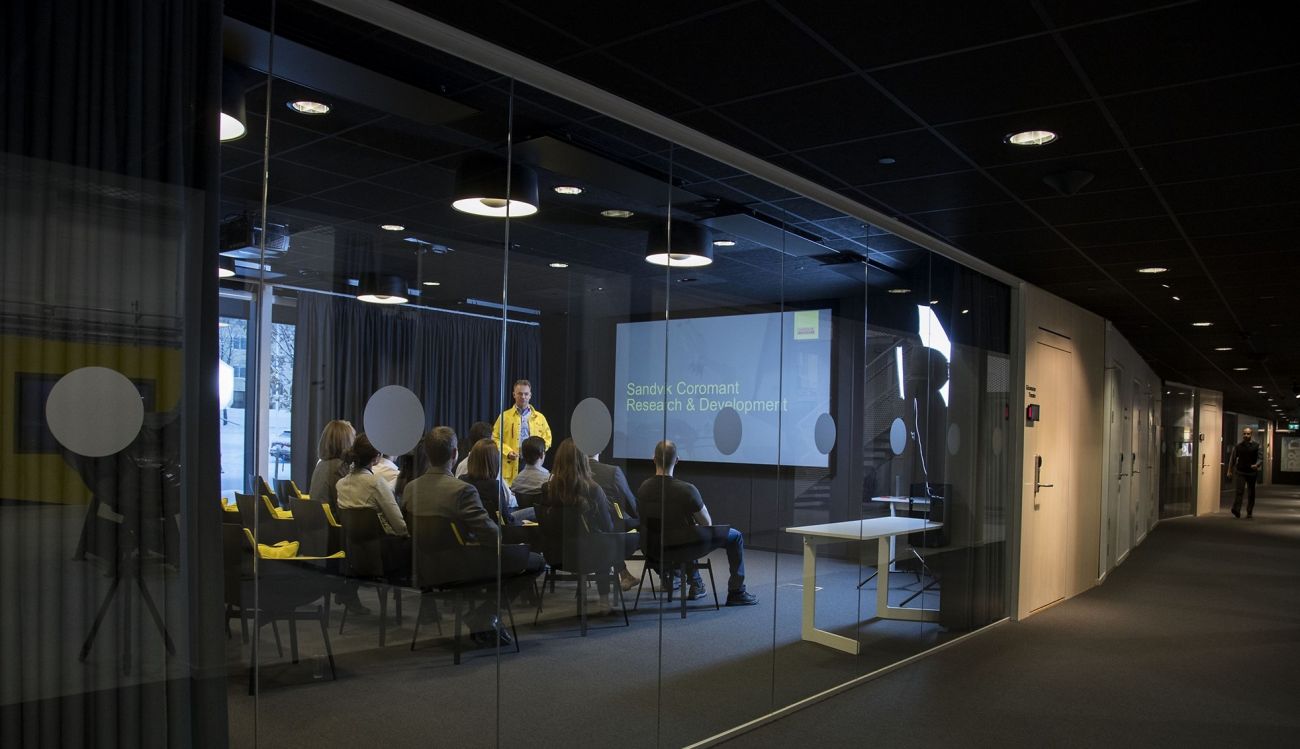Sandvik Coromant Upskills Industry

According to Search Consultancy research, manufacturing is the most affected by a skills shortage than any other industry, with 85 percent of businesses feeling the pinch of a skilled worker shortage. It is facilities like the Sandvik Coromant Centers that aim to make a difference by providing specialized training for engineers all across the world. However, the pandemic slowed consistent training for many, and industry is now being compelled to catch up. Daniel Strandell, Global Manager, Sandvik Coromant Centers, outlines how Sandvik Coromant is assisting with worker upskilling.
Sandvik Coromant maintains a global footprint of Sandvik Coromant Centers around the world that are committed to training customers in essential metalworking skills and showcasing the organization’s state-of-the-art machining technologies. Customers can attend lectures, presentations, and production environment demos at the centers, which highlight the company’s products and machining techniques. Sandvik Coromant Centers are currently located in Europe, the Americas, and Asia. The company was the first in the cutting tool industry to introduce application centers.
During the pandemic, however, COVID-19 limitations compelled many manufacturing facilities to seal their doors to the general public, and site visits came to a standstill. As a result, engineers throughout the business have missed out on approximately 18 months of critical training and education. So, how can we bridge the gap?
 Going online
Going online
The skills gap has been a source of concern for many industrial businesses for many years, but the pandemic has heightened its prevalence. Indeed, as per a recent McKinsey survey, 58 percent of respondents claimed that bridging skills gaps in their companies’ workforces had become an even bigger priority post-pandemic.
Sandvik Coromant Centres, for example, are critical in providing engineers with in-depth practical training that businesses may subsequently apply to their own operations. However, even though the centers were closed to visitors, the company made every effort to assist its customers. The only way to communicate was online, and the company did it through webinar series, product-specific training sessions, and live product demos streamed through video conference.
A series of monthly solid round tool knowledge sessions, for example, began in January 2021 as part of the virtual sessions. The online sessions cover critical metal cutting areas such as drilling and milling, as well as more specific areas such as machining aluminum for automotive components and machining composite materials, with the goal of delivering core application knowledge to those who lack in-house training capabilities.
Businesses are clearly taking the skills gap more seriously than ever before. Many people have begun to invest in training of some kind, with reskilling and upskilling at the top of the priority list. However, there are limitations to what may be accomplished in the virtual world. Businesses, particularly those in manufacturing, must bring workers together to upskill, and they should not limit their attention to their current workforce.
Bridging the gap
The company has worked with several customers who state that one of the primary reasons for wanting to invest in training is the skills gap. According to a separate study on the skills gap conducted by Search Consultancy, 40 percent of participants believe that a lack of qualified candidates is the primary cause of the skills shortage.
While it is crucial to invest in the skills of the existing workforce, industry must also turn to the next generation of engineers. As per a 2020 survey by EngineeringUK, over half of 11-19 year-olds know ‘little’ or ‘almost nothing’ about what engineers do. Aside from that, the pandemic has influenced when people start their jobs, as BAE Systems discovered that more than 40 percent of young people aged 16-24 in the UK surveyed are putting their career plans on hold until the pandemic is over.
The company actively engages with schools and universities to educate students on core metal cutting technologies in order to support future engineers. For instance, the company has collaborated with Rensselaer Polytechnic Institute to produce race car parts for a student competition. Sandvik Coromant advised on the proper tool choices for the race car’s aerospace-grade aluminum components, as well as on appropriate machining techniques and general advice for material removal, as part of the collaboration. The company also offers several education programmes in which students can work for the company for two weeks or six months after finishing school.
While online resources are adequate as a stopgap, facilities such as the Sandvik Coromant Centers immerse visitors in a real-life production environment, giving a highly valued method of training. Looking back at how the last 18 months have influenced engineering skills, it’s evident that the skills gap has widened. As we look to the future, providing a mix of virtual and in-person training to both new and experienced engineers will be critical to developing a skilled workforce.
Image Source: Sandvik Coromant



 Facebook
Facebook.png) Twitter
Twitter Linkedin
Linkedin Subscribe
Subscribe